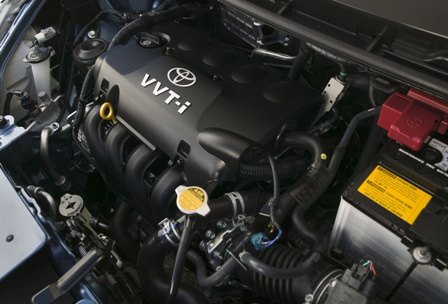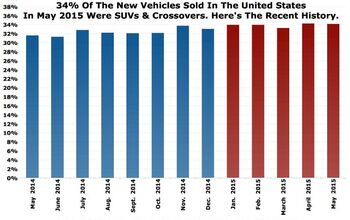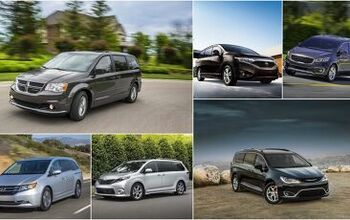Four-Banger U.S. Market Share Rises to 37%
Dow Jones Market Watch reports that tight credit, expensive gas and the economy in recession, four cylinder engines are becoming increasingly popular. Four-pot models now make up 37 percent of the U.S. market, up from 30 percent three years ago (when gas was last under $2/gal) Eight cylinder models fell from 28 percent to 18 percent over the same period. Tracing the development to purely economic factors, the report shows that hybrids do not yet offer enough savings to overcome their price premiums; hybrids only make up three percent of the market. "For now, the easiest, cheapest way for new-car shoppers to get better mileage is to choose a model with a conventional four-cylinder engine," says J.D. Power analyst Jason Rothkop. "And they are." The poster child for the four-banger revolution? The Toyotas Yaris. Sales of the four-pot economy car were up 83 percent in March. [For more info on last month's sales, check out Frank Williams' March By The Numbers.]
More by Edward Niedermeyer


































Comments
Join the conversation
started out of a point that a smaller engine can perform just as well as an engine twice its size when designed well. And then it became a popular discussion...opps.
Good points geeber. You are likely right about the leasing % of the Euro cars. It would not surprise me. I just can never find anyone who ever complains about their old VWs or BMWs. They all love them so much that the repairs don't seem to bother them. And I have never heard of many major problems with them, all "little" things...no engine failures. But maybe I only hear one side of things. But the fact that VW made the bulk of its fleet in Mexico for a while sure did not help. But, speaking of 4 bangers, I do not know enough about the ecotech to comment but are you saying that the ecotech would be a class leader if GM had paid more attention to it? I would say thats true of everything. I do know that my girlfiend's sister has a 1996 jetta, loves it. I drove it and even though it's 2 liter only makes 115hp, it was way more zippy and fun than my 2006 Focus. NA car makers are way behind and have some catching up to do.
I've got that same 115HP VW 2.0L. Good engine and torquey. Just because you sound surprised that it makes 115HP (as if that is alot), I'll mention that my '99 CR-V 2.0L makes 146 HP naturally aspriated. Of course it has much less torque in normal rpm ranges and is in a much heavier vehicle than my VW Cabrio. VBG! Hmm, let's switch the engines in these vehicles so their personalities match the application better... VBG! A four banger is all the average person needs for hauling around themselves and three passengers or themselves and some stuff. Of course much of our fellow citizens wants am much power and vehicle as they can navigate down the streets of America. We all pay for their consumption habits. That is one reason I want a fuel EV for my around town driving. If I have a full solar array on my house roof then those led foot daily drivers can use all the fuel they want and my cost is independent of how the market reacts. FWIW the cost of fuel will continue to go up. There are 160M drivers in China and 60M four wheeled vehicles. That does not include the millions of scooters or the size of the fleet and potential fleet in other developing countries like India. we'll hit little plateaus where fuel costs remain the same or where it even drops a little but I feel certain it will continue to consume a larger percentage of our personal budgets. FWIW Maybe this is a good thing. Bring some of our neighbors back to reality so that this generation gains some of the wisdom that our grandparents did in the Great Depression. Of course they too consumed as quickly as they could for a decade or two after WWII but I surely have met alot of retirees who made very careful choices that left them with a comfortable retirement and money to help their children into adulthood. Remember that when we are paying $5 a gallon, the cost of fuel in Europe potentially rise as well if their more valuable currency doesn't mediate this as well. I feel our current consumption patterns can't be sustained for generation after generation. FWIW I have a couple friends who are casually educating ourselves about how to feed ourselves without high cost groceries. I mean we are reading up and/or practicing some of the skills that our grandparents had like gardening and canning. Katrina demonstrated to us how fragile our society is. We can't rely on the gov't to show up and hold our hands. We can't rely on them to bring us groceries. We can't rely on them to make the best decisions for us as a country. Time to make some good decisions for ourselves. Unfortunately there are enough dimwits in this country that will continue to do what is easiest and potentially undermine whatever good decisions our gov't does make. Hopefully people will surprise us some better decisions.